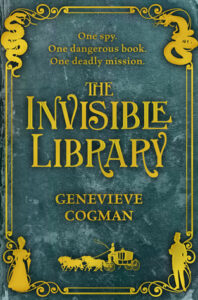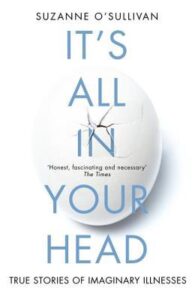So it’s SciFi Month on some blogs, and okay, I’m not really properly participating, but I couldn’t resist the opportunity to pick The Sparrow back up and read it again. I’ve only reread about 8 chapters at this point, and technically this post is for the first week of the schedule (up to chapter 11), but ssshh. Go read other people’s thoughts on week one here!
So, right, where are we. When I first read this, it was the first ebook I ever owned, and I read it more or less in one go (yes, all 500 pages of it) on my computer screen, so hooked was I. I didn’t even own an ereader yet. The site I bought it from no longer exists and the format is obsolete. I must’ve been 16, 17? 18 at the most, because I certainly read it before I went to university. I am wondering if I will get more out of it now from this perspective — though I got plenty out of it back then, and though I haven’t reread it before now, I have consistently recommended it as an excellent sci-fi novel.
Here goes, let’s see if it’s just as good now. Suck Fairy, stay away.
 “They went ad majorem Dei gloriam: for the greater glory of God. They meant no harm.” What was your initial/gut response to the Prologue?
“They went ad majorem Dei gloriam: for the greater glory of God. They meant no harm.” What was your initial/gut response to the Prologue?
“Oh god, it’s gonna kill me all over again, isn’t it.”
That’s really it. I’ve read this book before and I remember what a glorious horrible amazing gut punch it all is, and it starts it right there.
How are you getting on with the split timeline and the many points of view? How about Mary Doria Russell’s predictions for 2019?
I had totally forgotten that it was set in 2019. I did just read one bit that made me laugh, given the whole “ok boomer” meme: “The whole damned baby boom is retiring. Sixty-nine million old farts playing golf and complaining about their haemorrhoids.”
There are definitely disturbing parallels with things I see in the real 2019. It feels like a parallel universe where things just happened a little differently; not like she guessed terribly, laughably wrong. Her technology is a bit too far ahead in some ways, while other things are absent (the ubiquity of mobile phones, for instance), but all in all, it doesn’t feel too strange.
What are your first impressions of the characters? Any favourites so far?
I feel odd about how little I remember! Of course, I’m not really having first impressions, since I’ve read this before. I’d forgotten how little we get to see inside Sandoz — okay, obviously it preserves some of the mystery, but the memory of the book was that it was mostly about him, and so far, well. It does revolve around him, but right now we’re still seeing him entirely from the outside, with pity (in some sections) and with curiosity (how is he going to end up that broken from here?) in others.
It does feel rather like we don’t get inside the characters often in general, though, beyond one or two scenes for Jimmy and Anne, where we get to know what they’re thinking (mostly about Sandoz).
From what we learn of Emilio’s training and what we see in the ‘present’ day (2050s), what do you make of the Society of Jesus as portrayed here?
Like most things, it’s both the best and worst of humanity. Behr and Candotti, the best; Voelker and (in a more complex way) Giuliani, the worst. At times, it shows the irony of that they meant no harm line; clearly, harm is meant (for example during Sandoz’s training, just for starters) and committed in hope of a later, greater good.
Any other thoughts you’d like to share so far?
Edward Behr being nicknamed “Teddy Bear” is the best thing. Over and out.




























